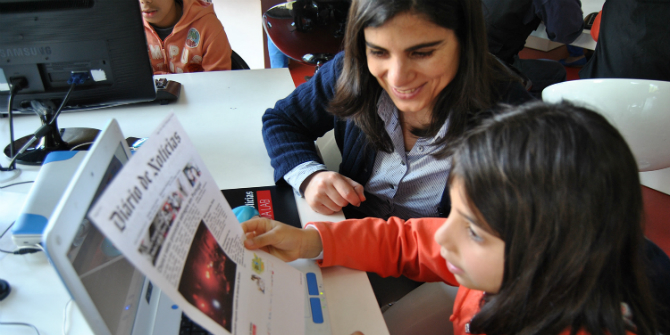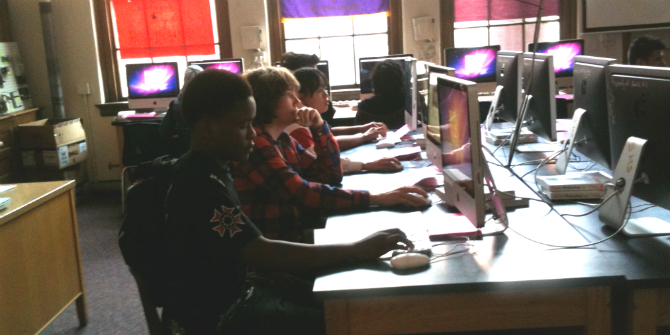At the beginning of a new decade, we take a look back at our recent posts from the end of 2019 and ahead to what is in store for 2020 – including publication of our book in June. [Header image credit:Kat-N.L.M.-CC-BY-NC-2.0.jpg]
Digital communication and family relationships
Several contributors looked at the impact of digital communication on family networks and relationships. We considered how the use of mobile phones by children in care to contact family members may affect the responsibility of foster carers to mediate such relationships. We also discussed the risks posed by ‘sharenting’ on social media and the best ways for parents and policy makers to address such concerns. We explored how digital technology such as Skype can help bridge the generational divide in Poland, but also argued that terminology which seeks to define digital generations can create unhelpful misconceptions and divides.
Technology in schools: opportunities and risks
In an increasingly datafied society two posts looked at the ethical and practical implications of children’s data collection and monitoring in both daycare centres in Germany and Denmark, and in schools, and considered how, particularly as children get older, they can better understand and manage their digital footprint. We also asked what schools can and should be doing to improve digital literacy and outlined our new toolkit created to help teachers keep up with a rapidly changing environment. More positively one study explored how innovative new technology might help children to display their emotions in the classroom.
Digital literacy and creativity
The development of digital literacy through informal play has also been the focus of a series of blogs around the MakEY project which researches the role of maker culture in the development of creative and digital skills. The first post examined the different roles that parents played within makerspaces, from babysitters to collaborators, and the impact this has on children’s learning. We then explored how the physical and symbolic set up of makerspaces, and the attitudes of educators, influenced parents’ interaction with their children. Finally we asked why tech-resistant Silicon Valley parents have encouraged their children to take part in these tech-focused spaces.
Privacy and rights
The development of digital literacy and the implications for children’s privacy and rights was the focus of several blogs. One study found that children struggle to identify adverts on YouTube and that disclosure systems were often inadequate. Research argued that policy needs to be revised to consider how children themselves understand privacy online, and considered children’s own ideas of what they think policy and law makers should do to protect them. More broadly we warned that children’s rights are being violated in new ways online and set out how States around the world should adapt their laws in response. In the UK, we’ve just seen publication of the ICO’s Age-Appropriate Design Code, and perhaps this will be a game-changer.
Mental health and wellbeing
A new research network has been set up in the UK to investigate how to promote young people’s mental health in an increasingly digitised world. We discussed parental mental wellbeing and why perfect images of parenting on social media may not reflect the reality of what has been termed the ‘parenting happiness gap’. More positively, a long-term study into teens in Nigeria found that social connectivity and mental health was enhanced by teens’ use of social media. Mental health continues to spark controversy when it is linked (or not) to social media, and will likely be a key theme for 2020.
This article represents the views of the author, and not the position of the Parenting for a Digital Future blog, nor of the London School of Economics and Political Science.





